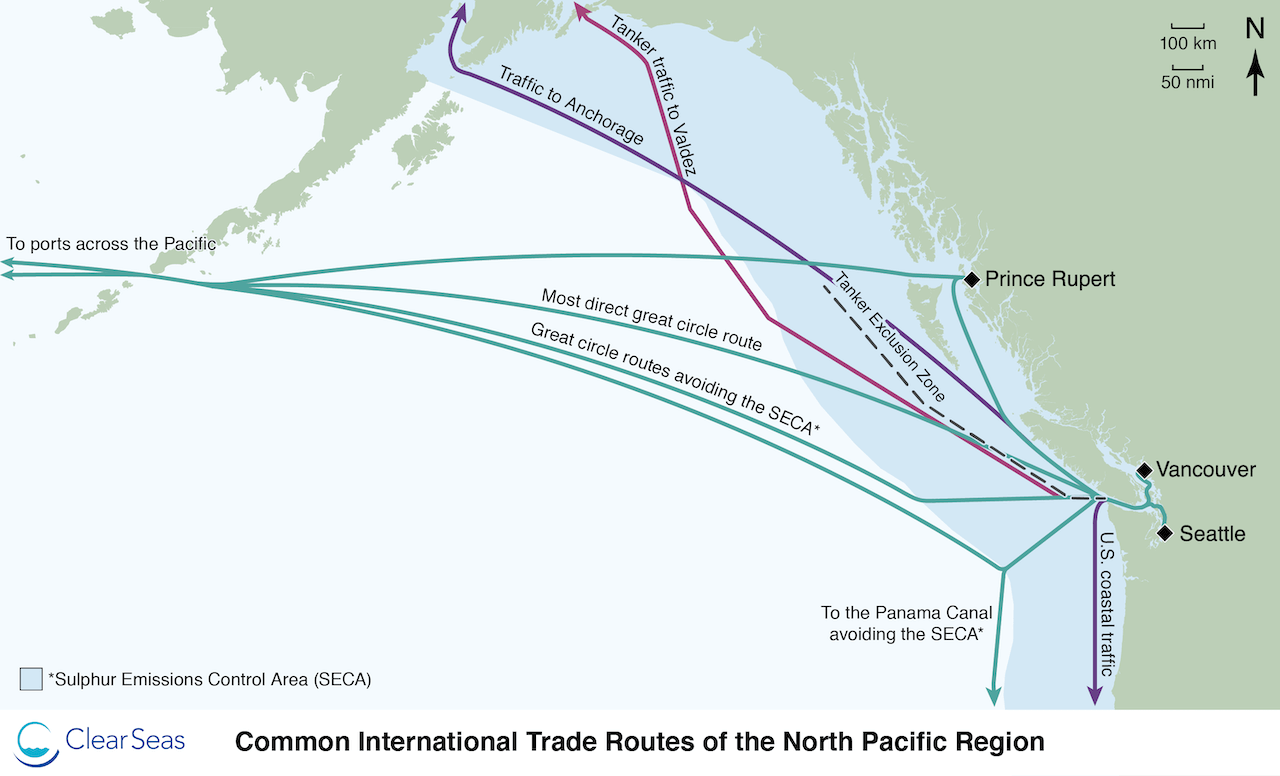Clear Seas Centre for Responsible Marine Shipping, an independent not-for-profit research centre that supports safe and sustainable marine shipping in Canada, contracted Nuka Research and Planning Group, LLC, to conduct a study to provide a clear, comprehensive picture of the commercial vessels operating in Canada’s Pacific region, their typical routes and behaviours, and the quantity and type of oil they carry. Among others, information and findings from this analysis will help better assess and understand risks associated with commercial shipping in Canada’s Pacific waters.
This study is the fifth body of work under Clear Seas’ Marine Transportation Corridors initiative undertaken to determine and describe risks related to commercial marine shipping activities in Canada, and to assist in marine spatial planning.
This study is, to date, the most current and comprehensive quantitative commercial vessel traffic analysis of Canada’s Pacific region made available to the public. It addresses existing knowledge gaps identified by Clear Seas through ongoing dialogue with First Nations, government officials, academics and industry.
The knowledge gained through this analysis can be used to support initiatives related to proactive vessel management and marine domain awareness, and to assess potential areas of friction in marine spatial planning.
“The study provides a snapshot of marine trade and traffic in the region. We saw four major results emerge from the analysis: the drivers behind Canada’s trade, marine traffic patterns, the emerging importance of small ports and the threat of oil both as a cargo and fuel as possible pollutants.” Paul Blomerus, Executive Director, Clear Seas Centre for Responsible Marine Shipping
“The increase in vessel traffic has a direct effect on our community, and other communities who live along the coast and have seen the foreshore erosion impacts. We have also seen a decrease in foods we can harvest due to contamination and toxins in the shellfish.” Chief Harley Chappell, Semiahmoo First Nation
You can read or download the comprehensif report here.





